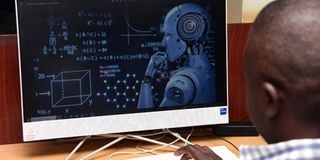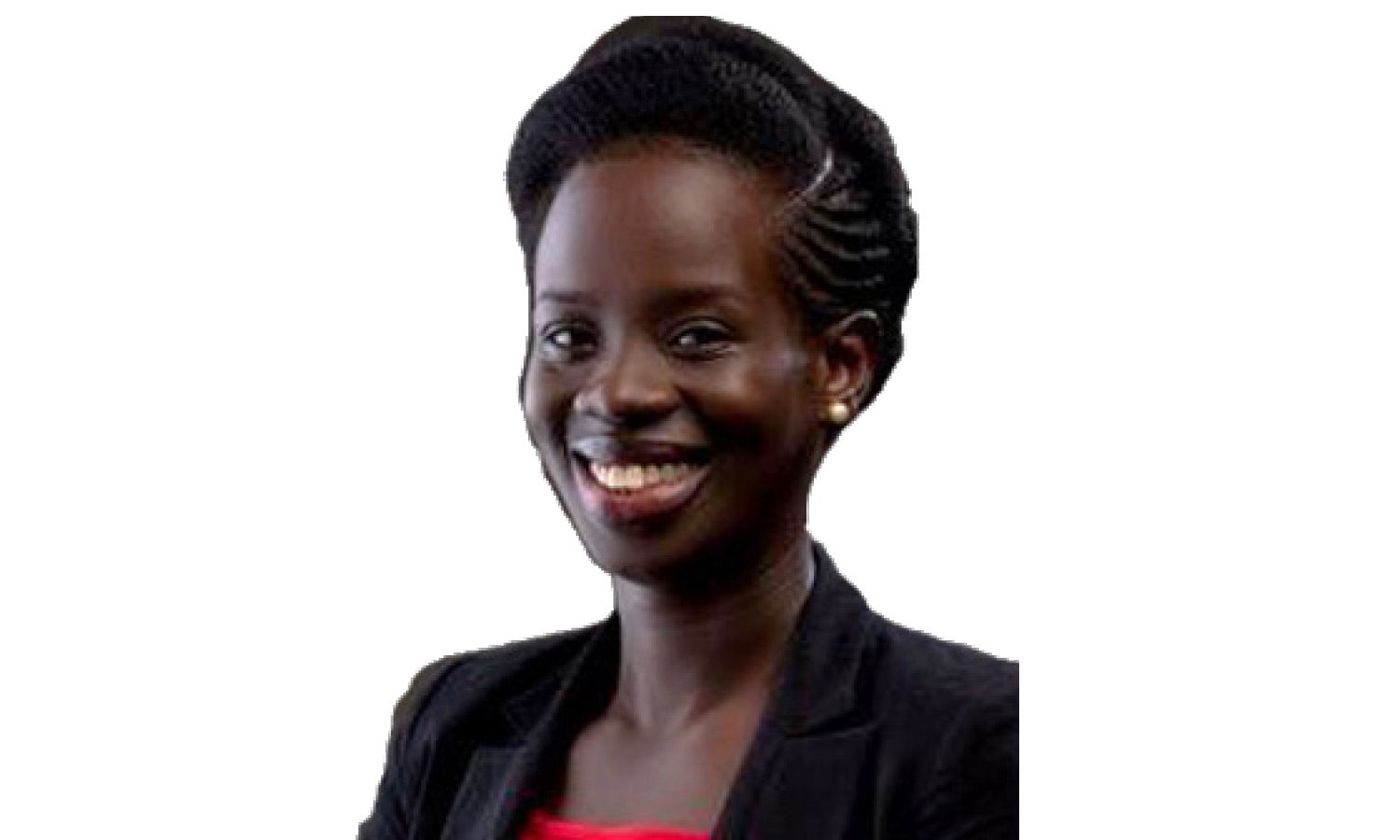How AI could reshape medicine

A journalist at Daily Monitor researches about Artificial Intelligence at a workstation in Kampala on December 19, 2023. PHOTO/ FILE
What you need to know:
Junaid Nabi makes case for artificial intelligence, saying in recent years, healthcare providers have become overwhelmed by managerial and administrative duties, constraining their ability to establish clinical rapport with patients.
On a recent international trip, I found myself running late to the airport. Not being fluent in the local language, I used a translation app that enabled me to convey the urgency of my situation to the taxi driver. The app’s camera feature also allowed me to understand the road signs, providing real-time updates.
This is just one example of how digital innovations, particularly artificial intelligence, are reshaping our world. With recent studies showing that AI models can now identify early signs of health complications such as sepsis, these technologies are poised to revolutionise medicine, too.
For starters, AI has the potential to make medicine more compassionate. For example, a recent study published in JAMA Internal Medicine compared responses from ChatGPT to health-related questions with those provided by human doctors. Interestingly, a panel of licensed health-care professionals preferred ChatGPT’s answers 79% of the time, viewing them as more empathetic toward patients. Previous studies have shown that greater empathy and compassion can improve patient outcomes and expedite recovery.
In recent years, health-care providers have become increasingly overwhelmed by managerial and administrative duties, constraining their ability to establish clinical rapport with patients.
This “documentation burden” often leads to burnout and undermines the quality of care. By providing automated answers to routine questions, scheduling appointments, and managing paperwork, AI-powered platforms could streamline administrative processes and free up physicians to spend more time with patients.
But AI’s applications extend well beyond rationalising administrative tasks. A growing body of clinical evidence suggests that deep-learning algorithms – trained on vast datasets of medical images and patient records – can analyse X-rays, MRIs, and other medical scans with remarkable accuracy, frequently surpassing the diagnostic capabilities of human physicians.
These innovations could revolutionise precision diagnostics, facilitating the early detection of diseases like pneumonia and cancer and supporting global health efforts, particularly in remote areas with limited access to specialised care.
Policymakers worldwide are increasingly recognising the importance of preventive health care, largely owing to its economic benefits. AI is central to this shift, interpreting data from wearable devices and sensors to identify early signs of pathology, particularly cardiac conditions, and thus preventing minor health issues from becoming catastrophic crises.
To be sure, integrating AI into health care poses significant challenges and raises numerous ethical questions. In addition to ensuring fairness, combating algorithmic bias, and maintaining data privacy and security, it is crucial to recognise that AI cannot replace the personal touch that is essential to clinical practice. Medical professionals ought to lead this transition, using new technologies to augment their skills.
While chatbots are unlikely to replace doctors and nurses anytime soon, AI tools are already supporting health-care providers by improving diagnostic accuracy and facilitating more personalized, data-driven care.
By adopting the emerging digital technologies in a responsible and ethical manner, we can transform the ways we diagnose, treat, and prevent diseases, ushering in an era of data-driven medicine.
Junaid Nabi, a senior fellow at the Aspen Institute, is a member of the Working Group on Regulatory Considerations for Digital Health and Innovation at the World Health Organisation.
© Project Syndicate 1995–2023




